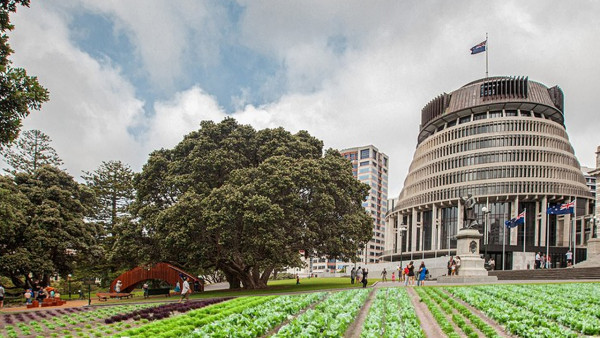Our new Government’s challenges
17 October 2020

The Government might change, but the challenges facing it will not. As Europe goes back into full on Covid lockdown, our first flight to Australia without quarantine requirements has taken off, with around 200 passengers. At the same time, there is a charter flight from Russia with fishermen to keep our fishing industry operational. We also have New Zealand’s business leaders calling for a new approach to managing the border: shifting from ‘closed’ to a risk management approach.
Business leaders want a simple, fast process for bringing critical workers across the border to help New Zealand gain more foreign investment, increase exports and build more infrastructure. BusinessNZ's Major Companies Group has said that the Government will need to focus on four key areas - jobs, the border, infrastructure and the economy - to give New Zealand the best chance of growth and recovery from Covid. The final ingredient in this mix is the head of the World Health Organisation questioning the value of lockdowns, due to the financial hardship and poverty that lockdowns cause.
We can breakdown the challenge in straightforward terms:
(1) to make money, you need to sell things
(2) to sell things, you need to produce them
(3) to keep people alive, you need to feed them.
Our country is not doing well: GDP in the first six months of the year was negative 13.4%. So we are starting from “behind the eight ball”, and we have a long way to go.
The driving force to meet these challenges is labour. Workers are needed to make and grow the produce to feed people and make money. In a country where resources and infrastructure are scarce, there would appear to a surplus of workers available. I think this is true. There are just under 200,000 people on wage subsidies, and unemployment figures have increased in some areas. The question is whether these people are willing to change careers and jobs, move to other parts of the country, undertake re-training and, as they learn how to do their new job, accept less money than they were previously paid.
Some make the comment that if you pay people enough, they will move. But before you can pay someone more, your business needs to be making enough money for it to survive. After all, that was the point of the wage subsidy – to get businesses afloat and their workers employed. Covid has imposed considerable costs on production and the supply chain and export air freight is more expensive and greatly reduced.
Simple maths is if your business is not making much money and only surviving, then paying more for not much more productivity is just not possible. With hospitality expenditure reduced and overseas’ tourism now non-existent, businesses that supply produce to those sectors are facing severe cutbacks.
These factors mean they just haven’t got the money to pay more to get the labour that is needed. The key is if productivity increases, then you can pay more. And by the way, I think it is a fallacy that paying more will solve a labour shortage. If a job is physically demanding and subject to the extremes of weather, there are only a few people who are willing to do this work.
Out of this discussion comes the underpinning challenge for the new Government – how to increase productivity. To increase jobs, open the border, create roading, improve internet access, build water storage infrastructure and improve the economy to trade our way out of debt, you need to increase productivity. So my central challenge for the new Government, on day one of their term in office, is for them to answer ‘how we are going to increase productivity, to enable economic recovery and allow wages to be lifted?’ Wages will not be lifted because the Government says they will – except by legislation, such as a minimum wage increase, which could reduce productivity.
The challenge for the new Government is how do you get the settings right for the businesses, the primary sectorand the growers of our healthy produce to increase productivity in a Covid impacted world. It can be done by making it easier for people to do business, by supporting businesses to employ and re-train New Zealanders, by sorting out airfreight and trade channels to market, by not closing businesses during lockdowns, by removing unnecessary bureaucratic restrictions and requirements and by allowing critical labour into the country to do the work that New Zealanders will not do.
We can grow our way out of the current recession, but only with bold new policy settings designed to increase our productivity and support from our new Government. All sectors have ideas on how to do this, and we are keen to share them and work in partnership to enable our economic recovery.
Mike Chapman, Chief Executive
